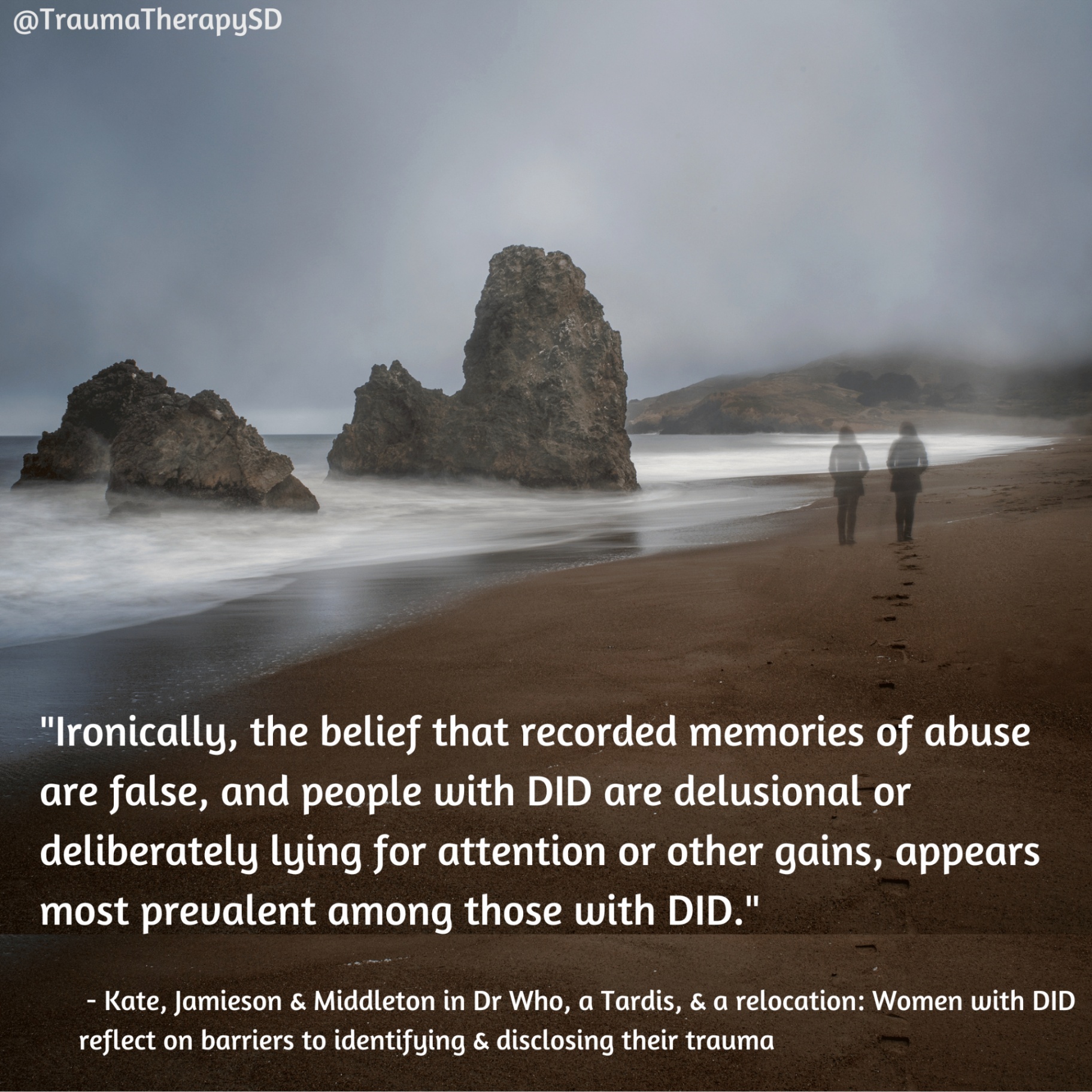Quote from Kate, Jamieson & Middleton

In the chapter, Dr Who, a Tardis, & a relocation: Women with DID reflect on barriers to identifying & disclosing their trauma, Kate, Jamieson & Middleton write, “Ironically, the belief that recorded memories of abuse are false, and people with DID are delusional or deliberately lying for attention or other gains, appears most prevalent among those with DID.”
I too find in my practice that it is almost universal for people with DID disbelieve their own experiences.
This is understandable given how fantastical our society makes it seem to be dissociative and have parts, it seems so unlikely, so out there.
Add on top of it the very common experience of these folks being explicitly told that they are making things up by both the perpetrators and others in their environment, and being questioned by health care providers and dismissed.
The average person with DID is in the mental health system for 10 years prior to their receiving an accurate diagnosis of DID. So, it makes sense there’s disbelief.
This disbelief comes in all phases of the work. There is often disbelief and pushback on the diagnosis initially and this disbelief will often come up repeatedly throughout treatment. It can come in the midst of parts having a conversation with the therapist.
This disbelief in and of itself does not invalidate their experiences or the diagnosis. This needs to be an on-going discussion and evaluation and is best addressed by the therapist in a supportive, curious stance.
It’s not about arguing or getting into conflict about the diagnosis, it’s about getting curious about why that concern is coming up now and attempting to look at the evidence in a non-judgmental way (easier said than done, I know).










